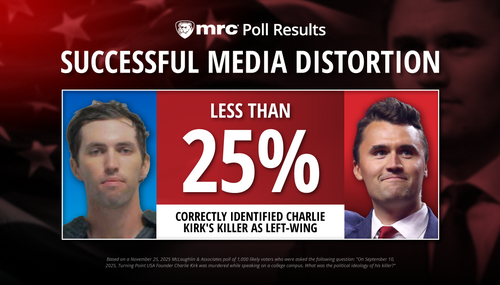Incoming NPR president Gary Knell smugly dismissed NPR critics in an interview with James Rainey of the Los Angeles Times. "If you listen over a period of time you hear voices from all ends of the political spectrum on NPR," Knell argued. "I think a lot of the critics, by what they say, don't even listen to the service." (Dear Mr. Smug: read the NPR section of NewsBusters, with links to your transcripts.)
That's not the only smug echo among the NPR rookies. Another line is that conservatives (or people who agree there's a liberal tilt) aren't the "real listeners," the "core audience" of NPR -- even if they're "core" funders through taxes. That's what new NPR ombudsman Edward Schumacher-Matos said in an interview on NPR's Talk of the Nation on October 11:
NEAL CONAN, host: I wonder, looking back over -- well, we've had a rocky year here at NPR [between the Juan Williams firing and the Ron Schiller "Muslim donor" video sting], and not just NPR News but at NPR. And do you find that, in your correspondence with listeners, that they trust this organization less because of some of the things they've found out about it?
SCHUMACHER-MATOS: Well, I think NPR took a little bit - a hit. I think we all recognize that. But I think, you know, the listeners, the real listeners, the core audience are willing to cut NPR a little bit of slack and understand that anybody can make a mistake. And I think we've all seen that NPR has tried to self-correct, which is good. You know, I don't think anyone disagrees that mistakes were made. But through it all, what we've all seen is that the quality of the news has remained high.
Translation: the only "real listeners" are the fans of NPR who like its liberal bias. That answer offers confirmation to the argument that NPR sees itself as liberal radio for liberal people, an ideological sandbox.
In that same interview, Schumacher-Matos insists he's listening to the "real listeners" and their complaints that NPR is too cautious, too willing to attempt fairness and placate conservatives:
CONAN: This is an email from Robert in Santa Rosa. NPR, my most trusted news source - is my most trusted news source, yet too often I get the sense that NPR's pursuit of accurate and comprehensive journalism is blunted by fear of the liberal tag.
SCHUMACHER-MATOS: Yeah. That is a growing complaint coming in. For the longest time, the criticism came from the right, that NPR was too liberal. But, you know, we're seeing -- I'm seeing more and more, and particularly in these last couple of weeks with the Wall Street protest, that people saying just that, that NPR has become cowed by the criticism by the right and is not covering things as fully as it can.
I even had this back and forth with Jay Rosen of New York University on, you know, how far NPR should go in drawing conclusions from its reporting. And he feels that NPR is just too cowardly. I don't agree with him but frankly, it's something I'm willing to follow much more closely.
For his part, Knell told the Los Angeles Times that he's ready to fight for NPR as if it were just as vital as defense or poverty programs:
When looking at all the social programs and defense programs and every other program the federal government pays for, public broadcasting is not sitting in some immune corner from everyone else," Knell said via phone from New York. "It's important to make the case that public radio is something to be valued."
Knell, 57, described himself as a longtime "groupie" of the radio network...."I think there would be a huge hole in people's lives if when they were in their car they were not able to listen to some of these programs on public radio," Knell said.
Just imagine the suicides if someone couldn't listen to "Car Talk."
Rainey didn't notice that NPR always claims it gets two percent of its funding from the federal government (although NPR affiliates get direct grants and send them into NPR). Like every other government-funded entity, NPR can paint a dire picture of "All your favorite shows will be cancelled" to get those letters to Congress humming.




